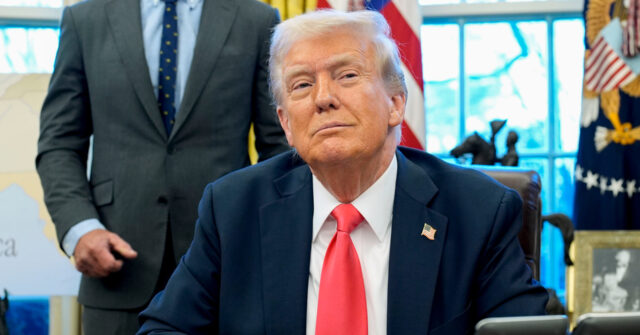President Donald Trump said Tuesday he plans to impose a fifty percent tariff on copper imports as part of a new wave of industry-specific trade measures, while suggesting pharmaceutical manufacturers may receive at least a year’s reprieve before facing steep new duties.
“I believe the tariff on copper—we’re going to make it 50 percent,” Trump told reporters during a Cabinet meeting at the White House. His remarks sent copper futures soaring, with prices in New York rising as much as 17 percent—the largest intraday jump since at least 1988.
The copper duty is part of a broader initiative under Section 232 of the Trade Expansion Act of 1962, which allows tariffs on imports deemed to threaten national security. Trump has launched national security investigations into several sectors, including semiconductors, pharmaceuticals, and base metals. Most imported steel and aluminum have a 50 percent tariff, although imports of those metals from the U.K. have only a 25 percent tariff.
Pharmaceutical tariffs, however, will not take immediate effect. Trump said he intends to offer drugmakers a grace period to repatriate manufacturing operations before the new duties are enforced.
“We’re going to give people about a year, a year and a half, to come in,” Trump said. “And after that they’re going to be tariffed if they have to bring the pharmaceuticals into the country, the drugs and other things, into the country. They’re going to be tariffed at a very, very high rate—like 200 percent.”
Trump framed the pharmaceutical tariffs as a measure to encourage domestic production, saying, “We’ll give them a certain period of time to get their act together.”
The proposed tariffs are distinct from the country-specific “reciprocal tariffs” the administration is preparing to implement beginning August 1. Those duties, aimed at trade imbalances with specific nations, would not overlap with the Section 232 tariffs targeting particular industries.
Taken together, the dual efforts reflect a sweeping escalation of the administration’s use of trade tools to bolster American manufacturing and reshape global supply chains, particularly in sectors viewed as critical to national security.
Read the full article here
